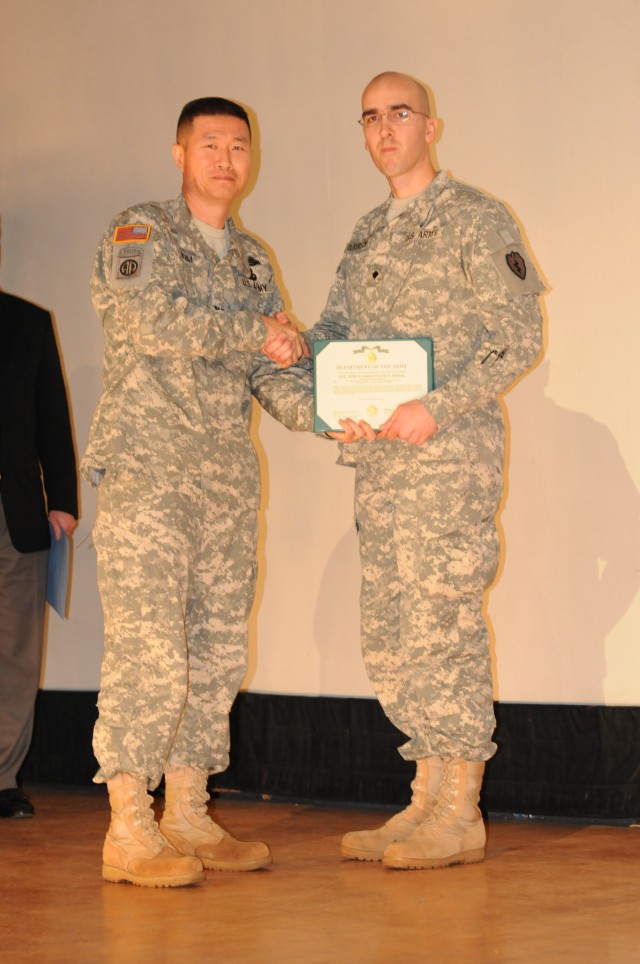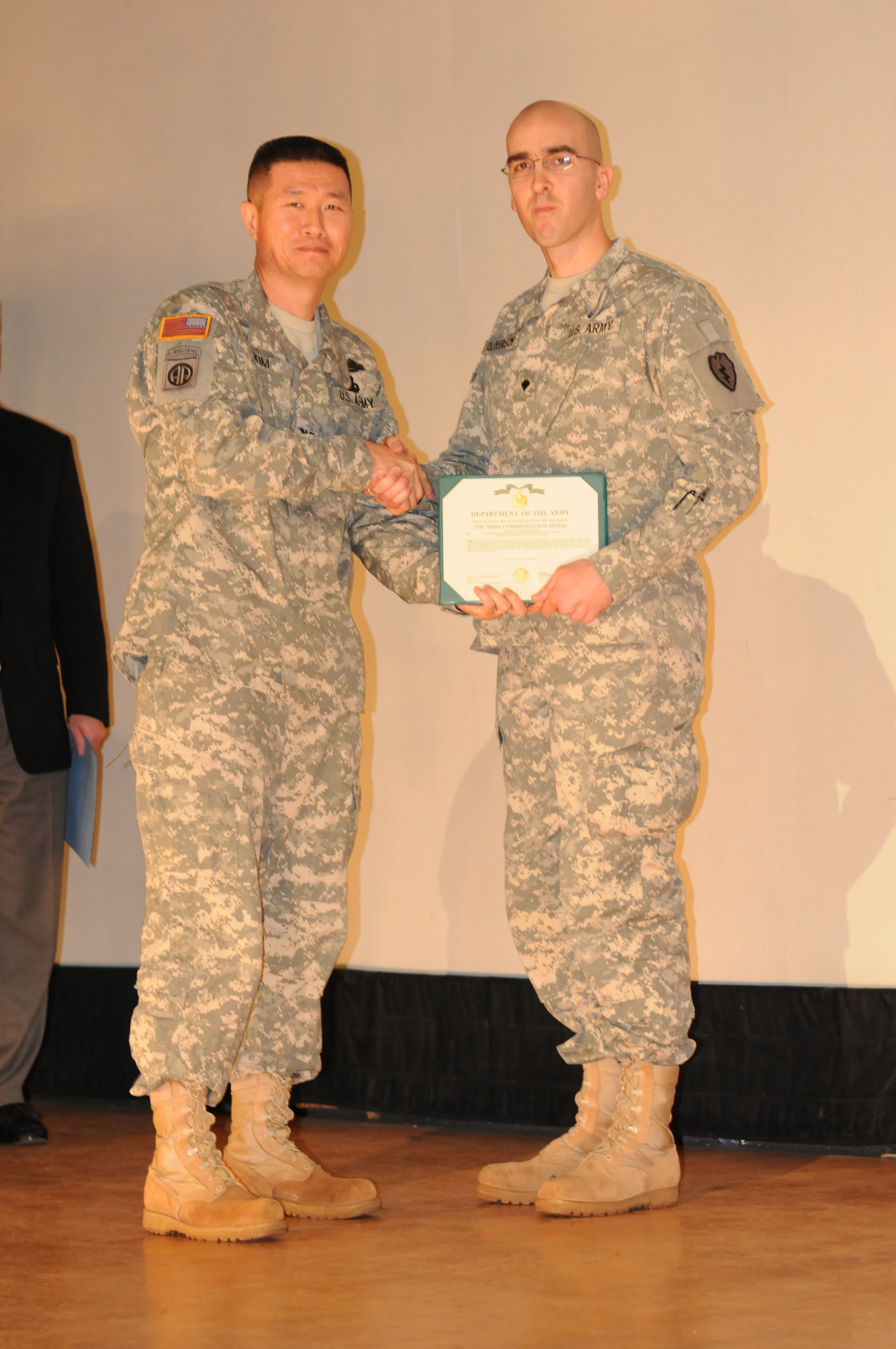Soldiers from the 3rd Brigade Combat Team, 25th Infantry Division graduated from the Afghanistan/Pakistan General Purpose Forces Language Training Detachment Dari Language Course at Sgt. Smith Theater Dec. 15 here.
The 16-week course was geared to give junior leaders the ability to better communicate Afghan military and government officials as well as the indigenous population. The course was taught in preparation for the brigade's upcoming deployment to Afghanistan in the Spring of next year.
"The very basis of counterinsurgency is relationship-building, and the basis of each relationship is
effective communication," said Comm. Sgt. Maj. Andrew Spano, command sergeant major for 3 BCT, 25th ID and guest speaker for the course graduation. "In breaking the language barrier between us and the Afghan people, we are a taking a major step in building the trust we need to make our mission in Afghanistan a success."
The training was provided by the 25th Infantry Division and the Defense Language Institute. Instructors for the course were native Afghan scholars, who traveled from their home country to teach the students of 3 BCT.
Students began with the very basics of Dari, learning first how to identify and write the characters of the Dari alphabet.
"The first three weeks were spent simply learning the alphabet," said Spc. Timothy Oliverson, honor graduate for the course. "After that we began to rapidly move into making words and then learning to form sentences in the correct grammatical structure."
Once graduates began to form sentences and phrases, they were given the opportunity to apply them during a series of scenarios which they may encounter during their deployment.
"We practiced the phrases we would use during car searches, body searches and manning check points," said Oliverson. "We practiced how to verbally establish a repoir during key leader engagements and how to address local problems."
Oliverson, who achieved Level Two in Dari, was especially excited as the language began to become clearer. The instructors were always present, even after the hours of formal instruction, to help students who wanted to progress even farther into the language. Level Two is a rare achievement for Soldiers who attend the course.
"They were always there to help," said Oliverson. "They were always available to work with us before class, after class and even during breaks or during lunch. As I began to understand the language more, the instructors got excited and began to joke with me in Dari. They would recite poetry to me and were very happy with my progress."
Oliverson is excited to get to Afghanistan and apply his new language skill to the Army's struggle
alongside the Afghan people against the insurgency which have plagued their nation for so long.
"I hope to come home with an even stronger understanding of Afghanistan's language and people," said Oliverson, "and hopefully with some new found friends."
As Spano stated in his speech to the graduates of the course, "All great success stories in the Army start with strong leaders using the right tools for the job. This language training is a formidable tool for not only the Soldiers who have been given the opportunity to learn it, but for your leaders. You, our Dari Language Course graduates, are now a resource for your leaders, your unit and for the Army as a whole."


Social Sharing